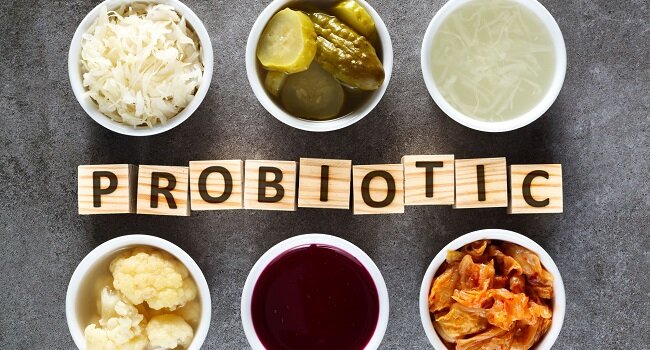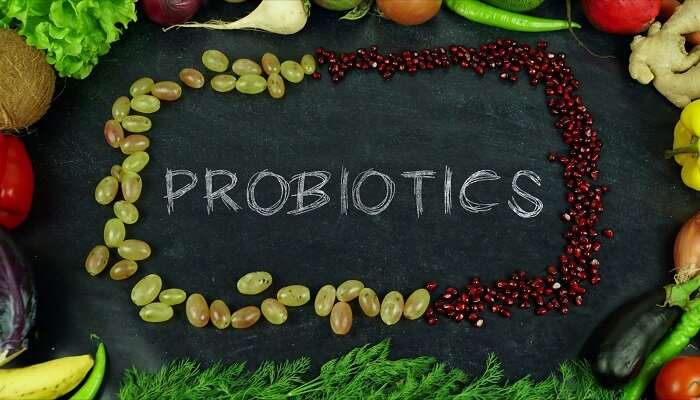Probiotics are vital for a healthy gut and overall well-being. These microorganisms help promote the growth of healthy bacteria in your gut. It’s, therefore, essential to incorporate probiotics in your diet to reap their benefits.
Probiotics can aid in digestion by lining your gut with healthy bacteria that act as a defense mechanism against harmful bacteria. Additionally, probiotic supplements have been shown to improve skin conditions such as acne and eczema, resulting in a healthier, more radiant complexion.
This article provides information on probiotics, how to add them to your health routine, and everything in between. Continue reading to learn!
What Are Probiotics?
Probiotics are yeast and live bacteria that are generally good for your health. These microorganisms live in your body and keep balance by fighting harmful bacteria from entering it, thereby preventing you from getting an infection. Probiotics also help in digestion and reduce inflammation.
Most people confuse probiotics with prebiotics. As mentioned, probiotics are live and helpful bacteria living in human bodies. On the other hand, prebiotics are compounds found in foods that induce the growth of good microorganisms. Prebiotics can also interfere with the composition of organisms in the gut microbiome. Most prebiotics are found in fruits and vegetables that contain complex carbohydrates such as fiber.
A poor diet and certain diseases can disrupt the balance of the microbiome in the gut. Consuming a diet high in fiber can help promote a healthy microbiome by exposing the body to prebiotics. However, a high-fiber diet can also slow down the absorption of sugar through the gastrointestinal walls.
As probiotics are associated with numerous health benefits, it is crucial to know which probiotics to take in order to receive the maximum benefits. Assess whether your probiotic intake is effective by monitoring certain indicators.
Signs probiotics are working include decreased stomach pain, reduced bloating, improved sleep, decreased vaginal infections, and better mental health. If you don’t experience any of these signs, it may be worth seeking professional help to determine the cause.
Tips On How To Incorporate Probiotics Into Your Diet
Before you decide to add probiotics to your diet, it’s essential to discuss it with your health practitioner, as stated earlier, especially if you are having health issues.
Generally, the following are some guidelines to help you incorporate probiotics effectively into your diet.
1. Take A Variety Of Probiotic Foods
Probiotics come in different forms. Therefore, you don’t need to stick to one type. Most fermented foods contain probiotics naturally or have probiotics added to them. These foods include yogurts, sourdough bread, some cheeses, and kimchi.
In addition to fermented foods, probiotics can also be found in dietary supplements. These supplements often contain strains of bacteria such as Lactobacillus and Bifidobacterium, which are known to promote gut health. You can purchase different probiotic supplements from leading companies like Essential Formulas.
Different foods contain different probiotic strains. The same thing applies when it comes to their effectiveness in your body. Some probiotics slow down the growth of harmful bacteria, while others can help boost your immunity.
Note that the effectiveness of probiotics in your body also depends on the dosage and frequency of consumption. Research has shown that probiotics need to be taken regularly and in sufficient quantities to have a positive impact on gut health.
2. Go Slow
If you want to try probiotics, start slowly to avoid any side effects. Many side effects are minor, but people with serious illnesses experience more severe complications. Some side effects include bloating which starts in the first days of probiotic intake.
Another potential side effect of probiotics is an increase in infections for some individuals. People with compromised immune systems—such as those who have undergone recent surgeries, experienced acute pancreatitis, or had prolonged hospitalizations—may be more susceptible to infections after consuming probiotics.
Some strains can increase histamine levels. Histamine is a molecule produced by your body when it detects harm. Some probiotic supplements contain bacteria that can produce histamine in your digestive system.
When histamine levels are high, blood vessels dilate, and more blood accumulate in the affected area. Accumulation in the blood vessels causes the affected area to swell, resulting in allergic symptoms such as itchiness and a runny nose.
Other side effects include diarrhea and flatulence a few days after introducing probiotics. Start with something that you are familiar with, like sauces and dressings. Only introduce a few probiotic products at a time. As you get used to one source, begin increasing the intake.
3. Be Careful With The Preparation
Like many microorganisms, probiotics are sensitive to extreme heat and may not survive high temperatures. However, this does not mean that foods enriched with probiotics cannot be cooked. It’s just important to avoid overcooking them, as this can interfere with their effectiveness.
Ideally, probiotics should be warmed and consumed at low temperatures, between 45 and 65 degrees Celsius, in order to preserve their beneficial properties. You should understand when to add them to your meal to maximize their benefits. Some probiotics, like cheese, need to be added at the end of your cooking process, while others can be used as toppings.
4. Read The Labels Carefully
You must be careful when using probiotic-enriched food with other food items. You should read the labels of your probiotic supplements carefully, especially if you are allergic, to avoid reacting to the ingredients contained in them.
Some probiotic supplements contain added sugars, which may counteract the beneficial effects of the probiotics. Consuming excessive amounts of sugar can harm the microbiome and cause an imbalance in the gut, leading to the proliferation of harmful bacteria. Therefore, try to consume unflavored varieties or any brand that does not use artificial sweeteners.

Conclusion
While many people link bacteria to sickness and diseases, some beneficial bacteria, such as probiotics, promote better health and boost your immune system. Due to their numerous health benefits, it is good to incorporate them into your diet. If you are unsure how to add probiotics to your meals, consider the information outlined above to ensure maximum effectiveness.



















